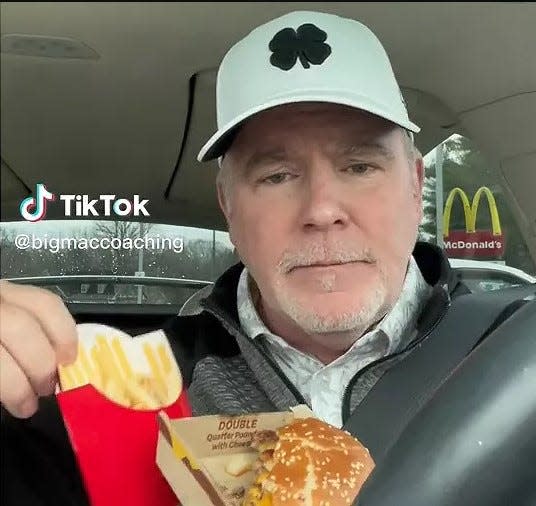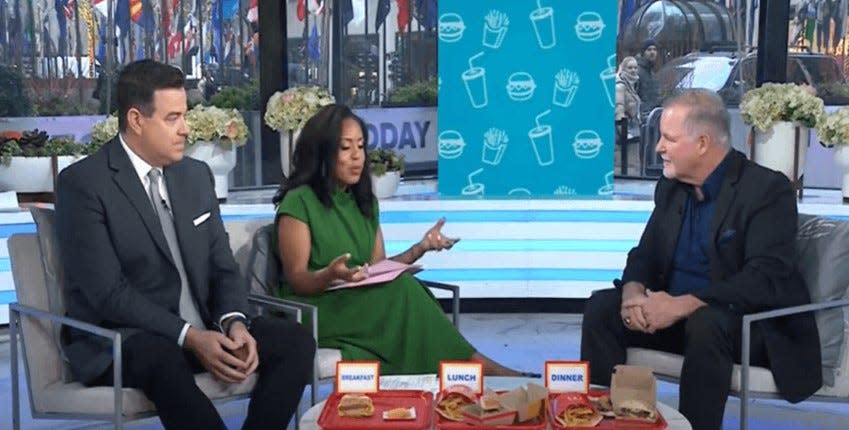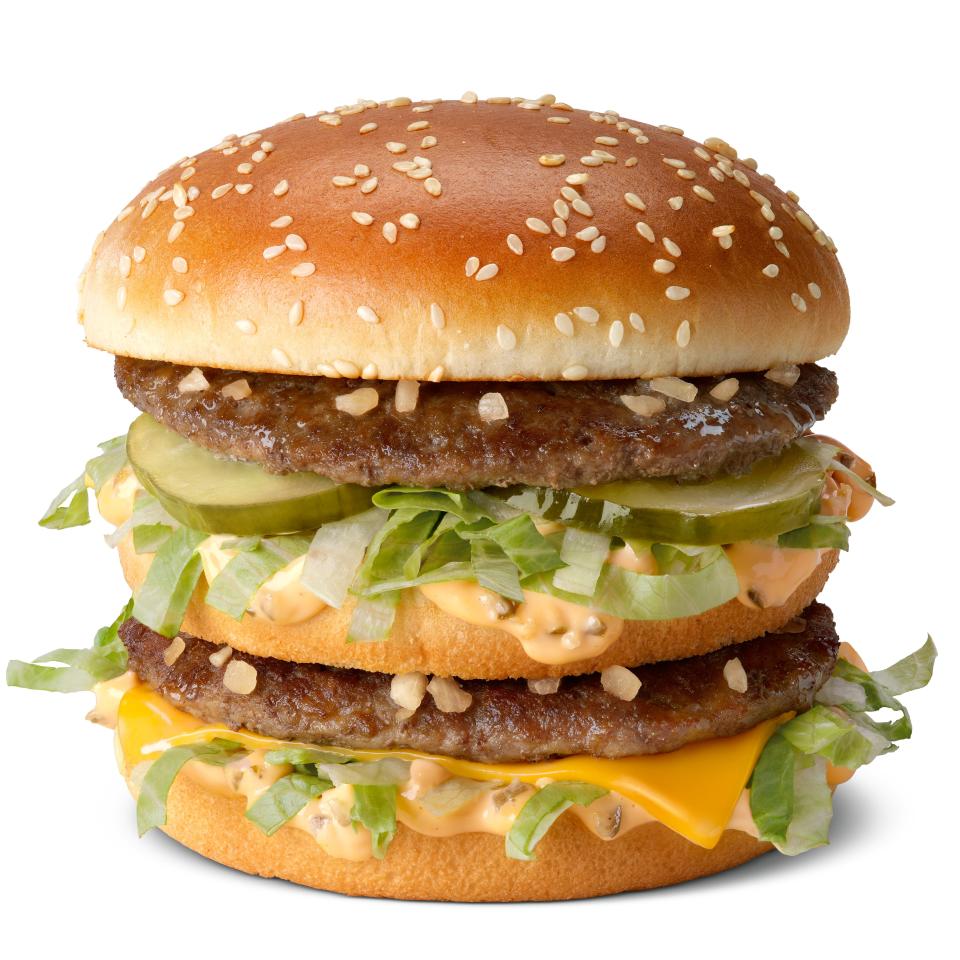The McDonald's diet? How one man has lost 40-plus pounds eating only fast food
Morgan Spurlock’s 2004 documentary “Super Size Me” gave McDonald’s perhaps the worst branding the Golden Arches has ever received.
The premise of the award-winning film: For 30 days, Spurlock ate McDonald's food, three meals a day, to see what would happen to his body.
The results were not pretty: He gained 25 pounds and as he told CBS’s "Early Show" at the time "My cholesterol shot up 65 points. My liver basically turned to fat. It was so filled with fat the doctors said it was like pate. It was reaching a toxic level, putting me at risk of having non-alcoholics' type of hepatitis, hardening of the liver, cirrhosis of the liver. It got really frightening for awhile. And the impact it had on my sex life was another aspect my girlfriend didn't anticipate."
More nutrition news: These top 10 'superfoods' help digestion, reduce blood sugar and more
More Health Matters: Study shows brain damage possible when mothers pass COVID-19 to babies through placenta
What'll end antivax belief? A child's death, ex-Palm Beach County top health official says
Well, nearly two decades later, the iconic fast-food chain is again the sole eatery providing sustenance to a man trying to prove a dietary point.
However, this time the McDonald’s-only eating plan is being portrayed in a more positive light.
A diet journey documented on TikTok
In February, TikTok user Kevin Maginnis, a 57-year-old business coach from Nashville, Tenn., went viral when he announced his plan to eat only McDonald's for three meals a day for 100 days straight in an effort to lose weight.
At the time, he weighed 238 pounds.
Maginnis said that he figured he’d lose at least 50 pounds over the course of the 100 days and that his medical bloodwork would also improve.

But how would he be able to shed pounds while consuming such fare daily?
By limiting his portions and drinking water instead of soda.
He explained that he planned to eat only half of each order — and save the leftovers for the following meal.
No item on the McDonald’s menu has been off-limits.
Because he was limiting his portions, and thus his caloric intake, he said he had no reason to incorporate any “cheat day” meals.
When he spoke to NBC’s "Today" early last month, he reported that he had lost 33 pounds and his doctor told him that his cholesterol had been significantly reduced.

Two weeks later, he posted on TikTok, while munching on a sausage, egg, and cheese burrito that he “was down 40 pounds.”
Maginnis says that "I've had cardiologists that love [this diet], and I've had cardiologists that hate it."
One person who’s definitely on board after seeing the effects of Maginnis’ approach: His wife, Melody. She joined him on the McDonald’s-only journey — and TikTok posts — in April and also has lost weight.
What do health professionals think?
Nutritionists are not surprised that eating smaller portions of McDonald’s fare daily has enabled Maginnis to lose weight.
They say that’s attributable to simply creating a deficit in caloric intake versus caloric burn.
But, not surprisingly, they’re not terribly enthusiastic about Maginnis’ nutrition plan.
For instance, registered dietician Frances Largeman-Roth said on "Today" that while Maginnis’ diet is safe "for the short term ... everything that health professionals know about how to be healthy over time is missing from McDonald’s food and other types of highly processed foods."

This includes, she noted, some 25 to 30 grams of fiber daily that can come from sources including legumes, nuts, seeds, fruits and vegetables, among others.
Plus, Largeman-Roth is also concerned about Maginnis’ sodium intake: “He’s still getting well over the recommended 2,300 milligrams of sodium daily. One bacon, egg and cheese biscuit contains 1,330 milligrams of sodium and a Big Mac has over 1,000 milligrams without ketchup or mustard.”
Beata Rydyger, a Los Angeles-based registered nutritionist, echoes Largeman-Roth's concerns.
“Consuming a diet that heavily relies on fast food such as McDonald’s can significantly increase the risk of chronic health conditions like heart disease and type 2 diabetes due to the high levels of saturated and trans fats, sodium, added sugars and additives found in these foods,” she told Healthline.
Author and Virginia-based registered dietician Jill Weisenberger also noted to Healthline that what makes the McDonald’s-only diet troublesome is what it precludes the follower from consuming.
By not getting enough fruit, vegetables, whole grains and other nutrient-dense foods such as beans, nuts and seeds, Maginnis could face “a deficit of vitamins, minerals, fibers, and disease-fighting phytonutrients. By eating McDonald’s meals only, it’s not possible to provide adequate fibers for the gut microbiota or to consume enough polyphenols to reduce inflammation and fight chronic disease.”
Maginnis began his 100-day plan on Feb. 21, so it’ll be concluding on June 1 — when he’ll no doubt share the final results both online and with the media.
Until then, however, regardless of what you think of his approach, he has proven that portion control is perhaps the most important component in shedding weight and/or keeping it off.
This article originally appeared on Palm Beach Post: TikTok user's McDonald's-only weight-loss journey goes viral

